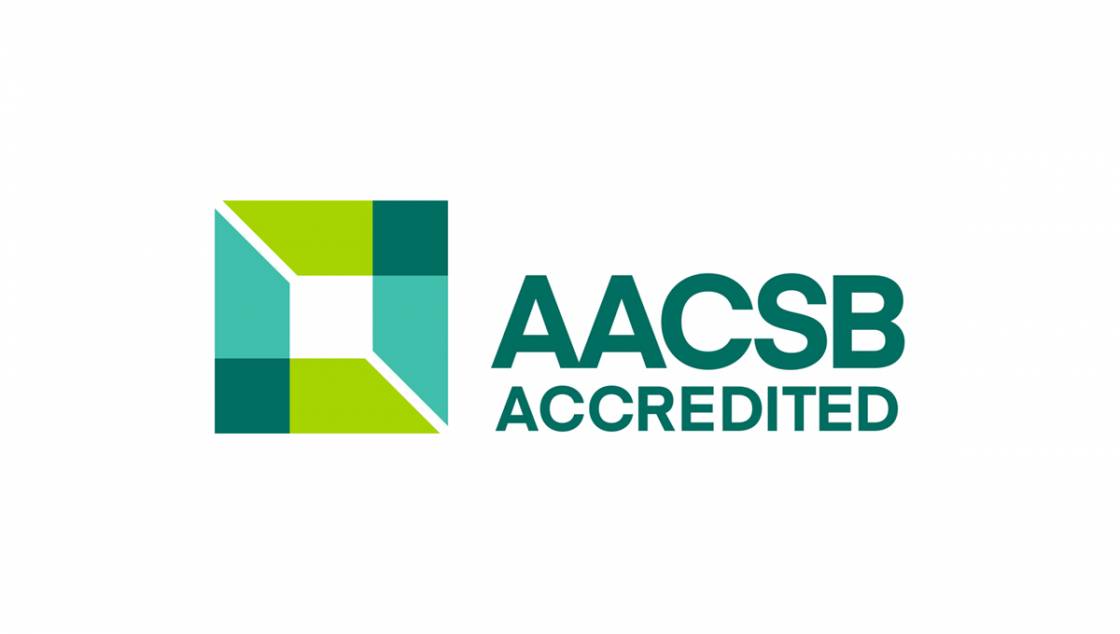Leadership and Management in Health PgCert/PgDip/MSc top-up/MSc (Distance Learning)
Why choose this course?
This course is ideal for experienced practitioners (five years plus) who are keen to broaden their leadership perspective and learn business focused skills to enhance their impact and pursue their career ambitions.
This course is taught entirely online, allowing you to study from anywhere in the world, fitting around your personal and professional commitments.
Online sessions take place two days a month. You will study the management of people, budgets, information, marketing and quality, and organisational change. You will be able to immediately apply the skills you learn to your workplace.
For the MSc, students will receive training in management research methods and will be able to conduct supervised research into a topic of their choice.
Ranked as one of the best health management masters courses in the world, and number two in the UK*, the programme offers both academic rigour and the practical skills to apply what you have learned to the workplace. On this course you will work with the latest research and learn modelling and theories that you can use to analyse and improve your organisation straight away.
For all course enquiries, please contact Graham Walker.
"This course is closely aligned with the changes that are taking place within the health service and what is being demanded in the workplace." Graham Walker, Course Director.
*Eduniversal global ranking 2024
| Mode | Duration | Attendance | Start date |
|---|---|---|---|
| MSc/PgDip part time | 2–4 years | 2 days online per month plus supported independent learning | September 2025 |
| MSc/PgCert top-up part time | 2–4 years | 2 days online per month plus supported independent learning | September 2025 |
| MSc/PgDip part time | 2–4 years | 2 days online per month plus supported independent learning | September 2025 |
| MSc/PgCert top-up part time | 1–2 years | 2 days online per month plus supported independent learning | September 2025 |
| Main Location | Kingston Hill |
Reasons to choose Kingston University
- This course has been ranked number 2 in the UK, and in the top 70 globally by the Eduniversal masters ranking 2024.
- Study with staff who all have experience within the healthcare sector, on a course that applies to public, private and voluntary sectors in the UK and internationally.
- Students are from a wide range of clinical and administrative backgrounds which makes for valuable sharing of different perspectives.
- Free car parking at Kingston Hill campus is available for students of this course. The campus can also be easily accessed by public transport. Halls accommodation is just a walk away from the classrooms.
Kingston Business School Accreditations
Kingston Business School holds the prestigious international accreditation by the AACSB (Association to Advance Collegiate Schools of Business) in recognition of the excellence of its business education. This accreditation has been earned by just 5% of the world's business schools and recognises the high quality and standard of our business degree offerings.
Specialist careers support
You will take part in an Assessment Centre Experience, providing the opportunity to experience the pathway to employment with tailored feedback to help develop your employability skills for the world of graduate employment.
- Develop your understanding of the jobs market, including current trends and opportunities, different recruitment processes and how to identify relevant roles
- Receive personalised feedback reports to help you to improve and progress
- Access additional webinars on top tips, employer expectations and best practice

At Kingston Business School we lead
The Department of Management at Kingston Business School
The Department of Management offers a broad range of accredited undergraduate and postgraduate courses covering all areas of business, from human resources and finance, to marketing, logistics and management.
Our programmes are developed in consultation with industry practitioners and alumni to ensure that your studies are future-facing and enable you to thrive, whether your ambition is to start your own company or become a senior leader in a global organisation.
Qualification
The programme you will follow depends on which qualification you want to pursue – choose from:
- MSc – Masters degree – minimum 2 years
- MSc top-up – Masters top-up – minimum 1 year
- PgDip – Postgraduate Diploma – minimum 2 years
- PgCert – Postgraduate Certificate – minimum 1 year
Teaching hours
Teaching takes place on Thursdays and Fridays once a month during term time. Students usually take two modules per term. You will study at Kingston Hill for a total of three days per 15-credit module and six days per 30-credit module. The rest of the course is taught through guided independent study. Students are supported remotely by the course academics throughout their chosen programme.
What you will study
You will start with an induction programme that introduces you to the modules, aims of the course and helps you plan your study around your professional commitments. You will then move on to the course material for your chosen qualification:
MSc
MSc top-up
PgDip
PgCert
You will complete 180 credits across a minimum of 2 years, comprising seven core modules.
Core modules
Leading People and Organisational Change in Health
30 credits
This module aims to integrate theory and practice of leadership, management and organisational behaviour, towards understanding of the individual, group and organisational factors that underpin organisational effectiveness in healthcare services in a context of accelerated change. Students will be encouraged to critically evaluate the characteristics of successful organisations, group dynamics and individual high performers within the context of health. In addition, the module discusses the internal, external and political triggers for change in healthcare. Students will learn to evaluate how receptive an organisational context is to change and to critically appraise the strengths and weaknesses of different models and tools for organisational change.
Strategic Health Management and Governance in Context
15 credits
This module aims to provide students with an understanding of strategic health management and governance in organisational, political, and socio-economic contexts. It will help students to develop an ability to analyse critically developments in healthcare management in the UK and other countries. Topics include evolution of health care management, new public management; marketisation and private sector involvement; decentralisation policy formulation and implementation; governance and inter-organisational collaboration, systems typology and methods of assessment, organisational and social influences, clinicians in management.
Managing Health Services for Quality
15 credits
This module aims to introduce the basic concepts of service operations management applicable to the health and social care environment. It will provide the methodology for the planning and control of resources within the health and social care environment and allow students to investigate various means of quality measurement and control and their suitability in ensuring the delivery of an appropriate and consistent service in line with the expectations of the service user.
Aspects of Financial Resource Management in Health
30 credits
This module seeks to examine the key issues which influence decision-making in what is often a 'cash limited' environment. The module reviews health service finance from two contrasting perspectives.
Firstly from a 'top down' viewpoint, in terms of the Source/s and Flow of Healthcare Funding that reviews how funding is allocated across healthcare organisations and how it is then dispersed within organisations.
Secondly, and in contrast, Health Economics for Policy Decisions then reviews how clinicians and other managers who hold budgetary responsibility should constantly review the degree to which allocated funding is being spent appropriately in order to drive clinical quality, value for money and health gain.
Managing Information in Health
15 credits
This module develops student ability to understand and use information as a strategic resource in supporting the delivery of health and social care services. It covers the changing role of information and communications technology (ICT) in the light of structural changes in the NHS and social care; and the enabling role of Information Technology (IT) in facilitating communication and collaboration among professionals and patients in the health and social care sectors.
Health Services Marketing
15 credits
This module explores the evidence base for, and measures the effectiveness of, the range of approaches available within the private sector which can be used to leverage improvements in public health service design and delivery. Topics include service and marketing aspects of: patient choice (choose and book), service user engagement, stakeholder involvement, service quality (fitness for purpose), service re-engineering (organisational turn-around), payment by results, demand management, marketing and differentiation / relationship management (stakeholder / professional), and relationship management (consumer / end-user). Students will also learn how to understand and balance both user and stakeholder expectations and perceptions in the effective management of service delivery.
Research Methods and Dissertation
60 credits
This is a core module for students studying at master's level. The module introduces students to the role that research methods play in developing discipline knowledge, and in providing the knowledge that underpins evidence-based practice. Students will develop the ability to critically evaluate research articles and other documents from a methodological perspective. They will develop the skills to conduct high quality research. Core factual material and learning resources will be provided electronically via Canvas. Classroom sessions will take the form of workshops where possible, and will cover topics such as reviewing research literature systematically; research design; qualitative and quantitative data collection methods and data analysis techniques; writing up and presenting research. For the dissertation, each student will have a personal supervisor who will provide guidance on planning and conducting the research, and on writing it up.
To complete the MSc top-up, you take the 60-credit Research Methods and Dissertation module.
Core module
Research Methods and Dissertation
60 credits
This is a core module for students studying at master's level. The module introduces students to the role that research methods play in developing discipline knowledge, and in providing the knowledge that underpins evidence-based practice. Students will develop the ability to critically evaluate research articles and other documents from a methodological perspective. They will develop the skills to conduct high quality research. Core factual material and learning resources will be provided electronically via Canvas. Classroom sessions will take the form of workshops where possible, and will cover topics such as reviewing research literature systematically; research design; qualitative and quantitative data collection methods and data analysis techniques; writing up and presenting research. For the dissertation, each student will have a personal supervisor who will provide guidance on planning and conducting the research, and on writing it up.
The minimum requirement for a PgDip is 120 credits. This is gained by completing Year 1 of the programme (comprising one 30-credit module and two 15-credit modules) and completing the second year of the programme (comprising one 30-credit module and two 15-credit modules).
Students who complete the PgDip successfully can convert this to an MSc by completing the MSc top-up.
Core modules
Leading People and Organisational Change in Health
30 credits
This module aims to integrate theory and practice of leadership, management and organisational behaviour, towards understanding of the individual, group and organisational factors that underpin organisational effectiveness in healthcare services in a context of accelerated change. Students will be encouraged to critically evaluate the characteristics of successful organisations, group dynamics and individual high performers within the context of health. In addition, the module discusses the internal, external and political triggers for change in healthcare. Students will learn to evaluate how receptive an organisational context is to change and to critically appraise the strengths and weaknesses of different models and tools for organisational change.
Strategic Health Management and Governance in Context
15 credits
This module aims to provide students with an understanding of strategic health management and governance in organisational, political, and socio-economic contexts. It will help students to develop an ability to analyse critically developments in healthcare management in the UK and other countries. Topics include evolution of health care management, new public management; marketisation and private sector involvement; decentralisation policy formulation and implementation; governance and inter-organisational collaboration, systems typology and methods of assessment, organisational and social influences, clinicians in management.
Managing Health Services for Quality
15 credits
This module introduces the basic concepts of service operations management applicable to the health and social care environment. You will cover:
- methodologies for the planning and control of resources within the health and social care environment; and
- means of quality measurement and control and their suitability in ensuring the delivery of an appropriate and consistent service in line with the expectations of the service user.
Topics include:
- investigation of different planning and control strategies and evaluation of their impact upon the scheduling and control of resources and facilities;
- measuring customer satisfaction (bridging the link between expectations and perceptions, the Servqual model, a review of the role of quasi independent bodies such as the Picker Institute, Doctor Foster Intelligence); and
- evaluation of quality programmes specific to the health and social care environment (eg Chris Wilson's model, RCN DySSy, Social Care Quality models).
Aspects of Financial Resource Management in Health
30 credits
This module seeks to examine the key issues which influence decision-making in what is often a 'cash limited' environment. The module reviews health service finance from two contrasting perspectives.
Firstly from a 'top down' viewpoint, in terms of the Source/s and Flow of Healthcare Funding that reviews how funding is allocated across healthcare organisations and how it is then dispersed within organisations.
Secondly, and in contrast, Health Economics for Policy Decisions then reviews how clinicians and other managers who hold budgetary responsibility should constantly review the degree to which allocated funding is being spent appropriately in order to drive clinical quality, value for money and health gain.
Managing Information in Health
15 credits
This module develops student ability to understand and use information as a strategic resource in supporting the delivery of health and social care services. It covers the changing role of information and communications technology (ICT) in the light of structural changes in the NHS and social care; and the enabling role of Information Technology (IT) in facilitating communication and collaboration among professionals and patients in the health and social care sectors.
Health Services Marketing
15 credits
This module explores the evidence base for, and measures the effectiveness of, the range of approaches available within the private sector which can be used to leverage improvements in public health service design and delivery. Topics include service and marketing aspects of: patient choice (choose and book), service user engagement, stakeholder involvement, service quality (fitness for purpose), service re-engineering (organisational turn-around), payment by results, demand management, marketing and differentiation / relationship management (stakeholder / professional), and relationship management (consumer / end-user). Students will also learn how to understand and balance both user and stakeholder expectations and perceptions in the effective management of service delivery.
The minimum requirement for a Postgraduate Certificate is 60 credits, gained by completing Year 1 of the programme, comprising one 30-credit module and two 15-credit modules.
Core modules
Leading People and Organisational Change in Health
30 credits
This module aims to integrate theory and practice of leadership, management and organisational behaviour, towards understanding of the individual, group and organisational factors that underpin organisational effectiveness in healthcare services in a context of accelerated change. Students will be encouraged to critically evaluate the characteristics of successful organisations, group dynamics and individual high performers within the context of health. In addition, the module discusses the internal, external and political triggers for change in healthcare. Students will learn to evaluate how receptive an organisational context is to change and to critically appraise the strengths and weaknesses of different models and tools for organisational change.
Strategic Health Management and Governance in Context
15 credits
This module aims to provide students with an understanding of strategic health management and governance in organisational, political, and socio-economic contexts. It will help students to develop an ability to analyse critically developments in healthcare management in the UK and other countries. Topics include evolution of health care management, new public management; marketisation and private sector involvement; decentralisation policy formulation and implementation; governance and inter-organisational collaboration, systems typology and methods of assessment, organisational and social influences, clinicians in management.
Managing Health Services for Quality
15 credits
This module introduces the basic concepts of service operations management applicable to the health and social care environment. You will cover:
- methodologies for the planning and control of resources within the health and social care environment; and
- means of quality measurement and control and their suitability in ensuring the delivery of an appropriate and consistent service in line with the expectations of the service user.
Topics include:
- investigation of different planning and control strategies and evaluation of their impact upon the scheduling and control of resources and facilities;
- measuring customer satisfaction (bridging the link between expectations and perceptions, the Servqual model, a review of the role of quasi independent bodies such as the Picker Institute, Doctor Foster Intelligence); and
- evaluation of quality programmes specific to the health and social care environment (eg Chris Wilson's model, RCN DySSy, Social Care Quality models).
What our students say
What this course offers
This Leadership and Management in Health course aims to:
- Help you develop leadership competencies and skills in the healthcare sector.
- Equip you with the knowledge and skills required to either enter professional practice of health management, or continue to a higher level professionally.
- Offer flexible, modular learning which can be taken as a Postgraduate Certificate, a Postgraduate Diploma or a Masters (MSc).
- Give you access to a wealth of information in lectures, journals, e-learning forums, seminars, the library, online lectures and discussion groups.
- Provide a critical understanding of the body of academic knowledge relevant to leadership and management and its application in practice.
- Expand your professional knowledge by facilitating discussion with other practising professionals from different organisations and sectors.
- Gives you an opportunity to research a specific area of healthcare management with practical application to your current workplace by means of a masters-level dissertation.
"Students act as their own resource in that you have a tremendous breadth of both education and practical experience... Students also act as a resource to each other and they can actually stimulate others to go on and do things that they felt maybe were beyond their scope." Graham Walker, Course Director
What our graduates say
Graduate vote of thanks
Entry requirements
Teaching and assessment
Who teaches this course?
You will be taught by an experienced teaching team whose expertise and knowledge are closely matched to the content of the modules on this course. The team includes by a mixture of highly qualified academics and healthcare practitioners with experience in the healthcare sector. The following group of staff members are currently involved in the delivery of different elements of this course. This pool is subject to change at any time within the academic year.
Visiting practitioners
A range of guest practitioners will also contribute to sessions on this course. They will provide insight and specialist knowledge whilst making connections and links to real-life experience within industry. The following experts have appeared on this course recently:
- Gema Borrego, Senior Project Manager EMEA, Becton & Dickinson
- Charlotte English, Senior Improvement Lead, King's College Hospital NHS Foundation Trust
- Daniel Woodruffe, Chief Information Officer, Lewisham and Greenwich NHS Trust
- Jenny Platt, Service Improvement Manager, Chelsea and Westminster NHS Trust
- Charlotte Amison, Project Manager, Contact a Family
- Kristina Holding, Owner and Sports Rehabilitation Therapist, Fitworx
Course fees and funding
Additional costs
Depending on the programme of study, there may be extra costs not covered by tuition fees. Students will need to consider these costs when planning their studies. Tuition fees cover the cost of your teaching, assessment and operating University facilities such as the library, access to shared IT equipment and other support services. Accommodation and living costs are not included in our fees.
Where a course has additional expenses, we make every effort to highlight them. These may include optional field trips, materials (e.g. art, design, engineering), security checks such as DBS, uniforms, specialist clothing or professional memberships.
Eduniversal best masters winner 2024
This course has been rated as one of the best health management masters courses worldwide.
It was ranked 65 in the world by the Eduniversal masters ranking 2024, placing the programme second in the UK.
Eduniversal ranks masters programmes from more than a thousand business schools and universities. Key criteria include: the reputation of the programmes with human resources managers, career prospects, salaries and details of first jobs. The rankings also look at the results of a satisfaction survey of recent graduates.
After you graduate
Recent graduates work for NHS trusts in roles such as service improvement and efficiency managers, senior managers, physiotherapy inpatient operational leads and as corporate strategists for St Michael's Hospital, Ontario, Canada.
Kingston Business School: who do you want to be?
Course changes and regulations
The information on this page reflects the currently intended course structure and module details. To improve your student experience and the quality of your degree, we may review and change the material information of this course. Course changes explained.
Programme Specifications for the course are published ahead of each academic year.
Regulations governing this course can be found on our website.










